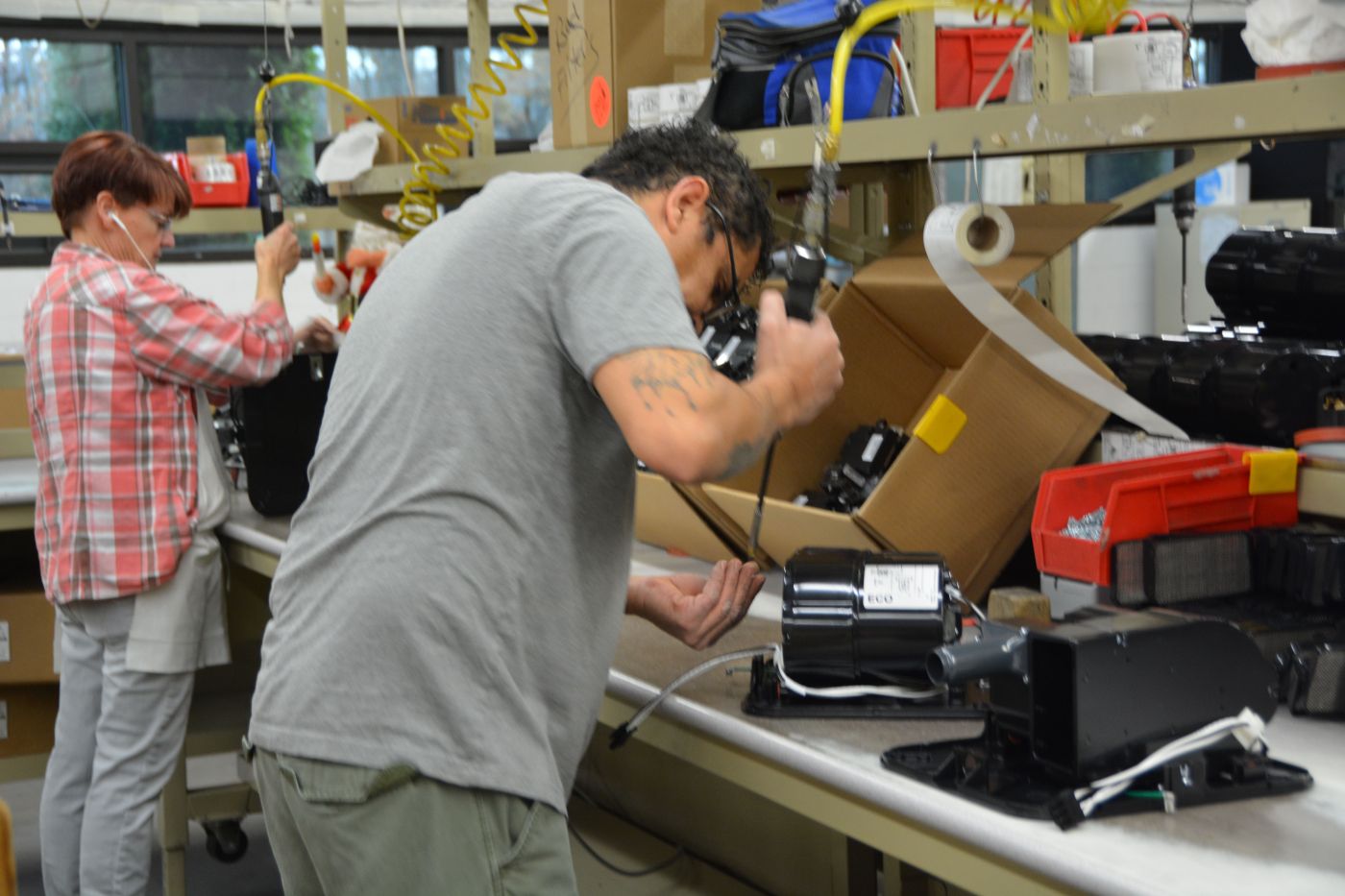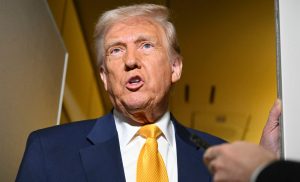
‘Made in U.S.A’ model was never cheap, but those businesses can skip tariffs
If you build it here, your business can ignore the tariff fights.
It’s a frequent refrain of President Donald Trump’s administration as the president attempts to reset the trade equation with the rest of the world: that businesses can avoid the ravages of his shifting tariff policies by simply making their products in the United States.
Indeed, on Friday, the Trump administration issued a long list of companies who have apparently made promises to aid in the “reshoring American industry” as proof the president’s trade policies are working to solve the longstanding problem of the nation’s shrinking manufacturing base.
“The loss of American industry means we struggle to build ships, medicine, and other essential goods,” the White House wrote, declaring the situation a “national security emergency.” Not taking action, according to the Trump Administration, would be tantamount to mental illness.
“It’s cliché, yet true — the definition of insanity is repeating the same thing over and expecting a different result. The trade policies of the past several decades have failed this nation, its workers, and our communities,” they wrote.
According to one Bay State business, the lesson many companies are learning right now through Trump’s trade war is one they confronted long ago, during past periods of economic uncertainty.
East Longmeadow-based Excel Dryer makes their products entirely in the United States and with U.S. sourced materials, the company’s Vice President and Chief Operations Officer, William Gagnon, told the Herald. According to Gagnon, his family’s business learned through previous recessions that keeping manufacturing local and that buying materials locally is the key to surviving world-wide economic turmoil.
“That was done for our own business strategy and model and beliefs. But, it was driven by situations that we’ve run into — like during COVID and through previous recessions and other issues — of having a hard time getting a certain material from China, or price fluctuations, or lead times. And that has hurt us previously, and we wanted to control that,” Gagnon said.
Last Wednesday, Trump decreed that his “Liberation Day” tariffs had brought about enough response among impacted nations that they were no longer immediately necessary, and that he would suspend them for 90 days. China, however, would face an additional 125% duty on top of the 20% tariff Trump imposed earlier this year.
Beijing answered with 125% tariffs of their own, and the Chinese Finance Ministry declared that, “with tariff rates at the current level, there is no longer a market for U.S. goods imported into China.”
The U.S. stock markets responded to Trump’s initial tariff threats with days of decline, only to bounce back somewhat on the news he would suspend most duties in favor of a flat 10% tax on foreign imports. Market volatility seemed to jump up-and-down in time with the on-again-off-again beat of Trump’s changing policy.
One place that wasn’t impacted and likely won’t be, according to its COO, is Excel Dryer.
“All of our vendors are now domestic, and we actually did an analysis with them and audited them, to go another layer deeper to see where they were getting their materials from, and if they were going to be affected by the tariffs. And, really, what we found out is that even with all of our vendors — and with the focus being on ‘sourced and manufactured in the U.S.’ — they are all sourcing their stuff domestically, too,” he said.
Gagnon stressed that many times his company was tempted to take the “easy route” and offshore some their productions or supply to cheaper overseas facilities, but that the payoff for their efforts is being made abundantly clear now.
“The tariffs are not going to affect our product,” he said.
According to the Associated Industries of Massachusetts, Trump’s tariffs will have broad impacts on other Bay State-based business, many of which rely on international markets to sell their goods or services.
“The 3,400 member companies of Associated Industries of Massachusetts remain concerned that the global tariffs contemplated by the Trump Administration will be counterproductive to Massachusetts businesses, which export some $77 billion worth of goods and services each year to 210 markets globally,” AIM President Brooke Thomson said in a statement.
Trump’s assertions that companies will return manufacturing to the U.S. as a result of the tariffs, even if they come to pass, probably won’t help the situation in the Bay State, and that’s especially when it comes to business expansion and competing with other states, Thomson said.
“Any manufacturing re-shoring that takes place as a result of tariffs is unlikely to benefit Massachusetts while retaliation by important export markets will impede our collaborative efforts to expand the state’s economy,” she said.
Alan Clayton-Matthews, senior contributing editor to the economic publication MassBenchmarks and emeritus professor of economics and public policy at Northeastern University, in a recent interview with the State House News Service, said that Trump’s policies are causing conversations about uncertainty “everywhere,” and that the U.S. is at risk of finding itself on the outside of the global economy and looking in.
“One polar outcome of this trade war is that deals do get made and tariffs get lowered worldwide — lower than they were before this all started. That would be a good thing for the United States and the world economy. That’s one pole of an outcome. The other pole of the tariff war is that the U.S. builds tariff walls against trade with the rest of the world. That would be the worst outcome, because it would leave us very isolated,” he said.
Assembled products as seen at Excel Dryer’s East Longmeadow manufacturing facility. (Courtesy of Excel Dryer)
William Gagnon, Vice President and COO of Excel Dryer. (Courtesy of Excel Dryer)


